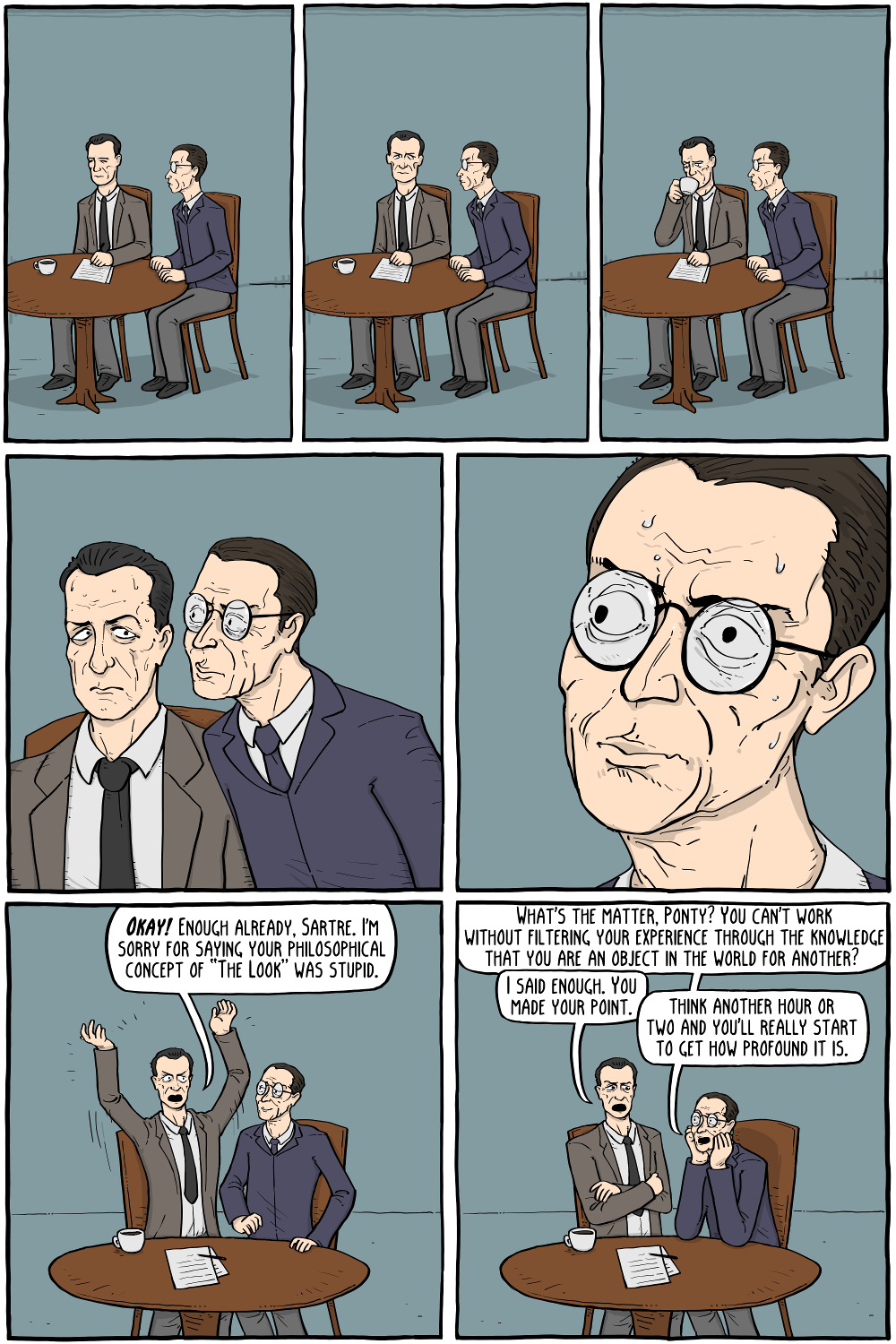
"The Look" was a central concept in Sartre's phenomenology. It meant, essentially, what occurs when a consciousness if forced to recognize that it exists not only as the center of its own being gazing outward, but also as a mere object in the world of others. For Sartre, this recognition was essentially in becoming a fully realized consciousness, what he called a "self-reflective" consciousness. That is to say, not only conscious of the world, and but having your consciousness turned inwards towards itself, being aware of itself, and aware of itself in relation to others. His most famous example asks us to imagine someone gazing through the keyhole of a door (abridged heavily here, as Sartre tends to be a little long winded for how long these explanations usually run, you can find the full passage in Being and Nothingness, pg 317):
Let us imagine that moved by jealousy, curiosity, or vice I have just glued my ear to the door and looked through a keyhole. I am alone and on the level of a non-thetic self-consciousness. This means first of all that there is no self to inhabit my consciousness, nothing therefore to which I can refer my acts in order to qualify them. They are in no way known; I am my acts and hence they carry in themselves their whole justification. I am a pure consciousness of things, and things, caught up in the circuit of my selfness, offer to me their potentialities as the proof of my non-thetic consciousness (of) my own possibilities. This means that behind that door a spectacle is presented as "to be seen," a conversation as "to be heard."
...
But all of a sudden I hear footsteps in the hall. Someone is looking at me. What does this mean? It means that I am suddenly affected in my being and that essential modifications appear in my structure - modifications which I can apprehend and fix conceptually by means of the reflective cogito.
First of all, I now exist as myself for my unreflective consciousness. It is this irruption of the self which has been most often described: I see myself because somebody sees me - as it is usually expressed.
...
Only the reflective consciousness has the self directly for an object. The unreflective consciousness does not apprehend the person directly or as its object; the person is presented to consciousness in so far as the person is an object for the Other. This means that all of a sudden I am conscious of myself as escaping myself, not in that I am the foundation of my own nothingness but in that I have my foundation outside myself. I am for myself only as I am a pure reference to the Other.
If it helps, just try to imagine yourself parallel parking into a super tight space while a crowd of people watches.
Permanent Link to this Comic: https://existentialcomics.com/comic/235
Support the comic on Patreon!










